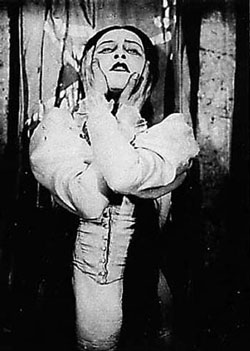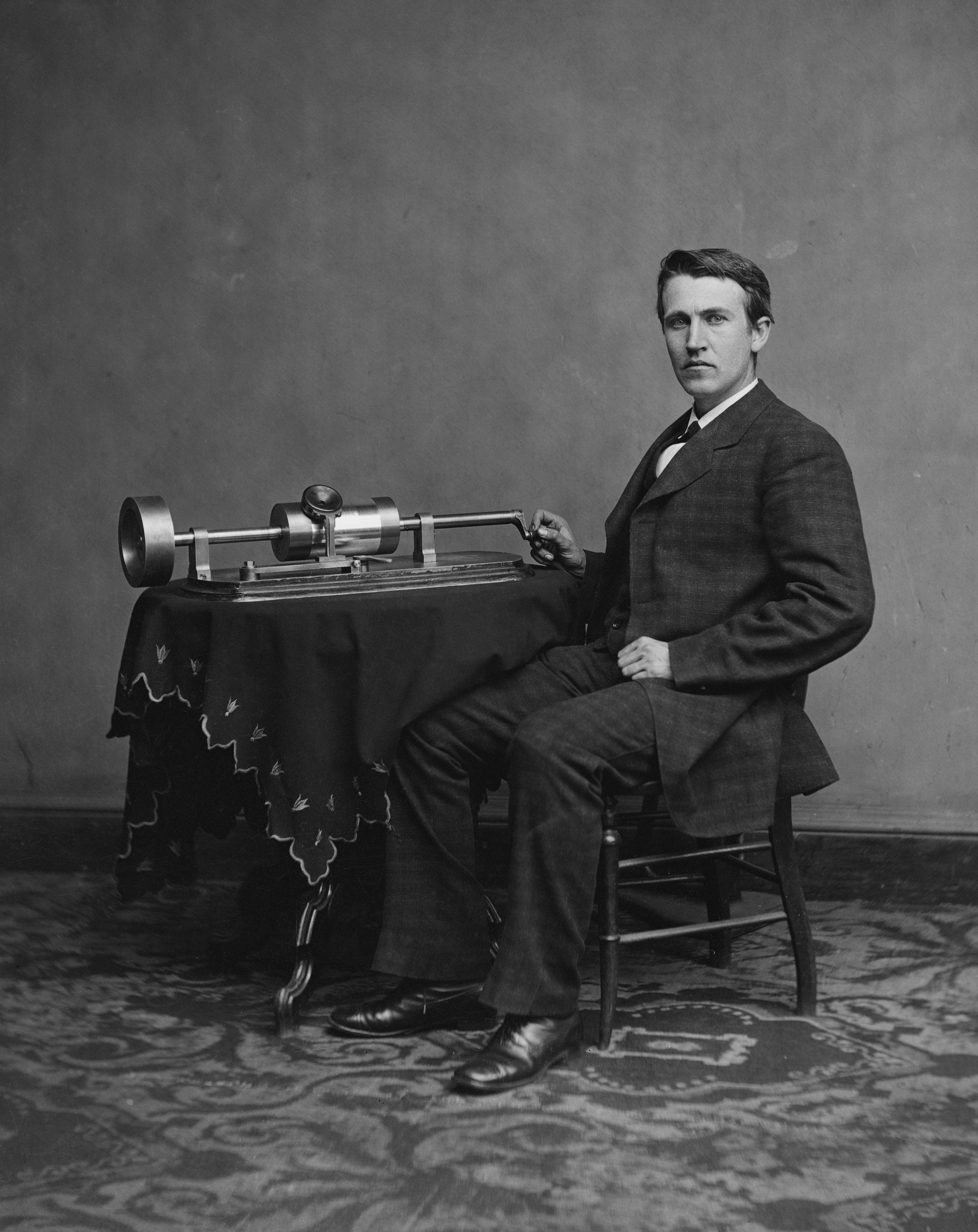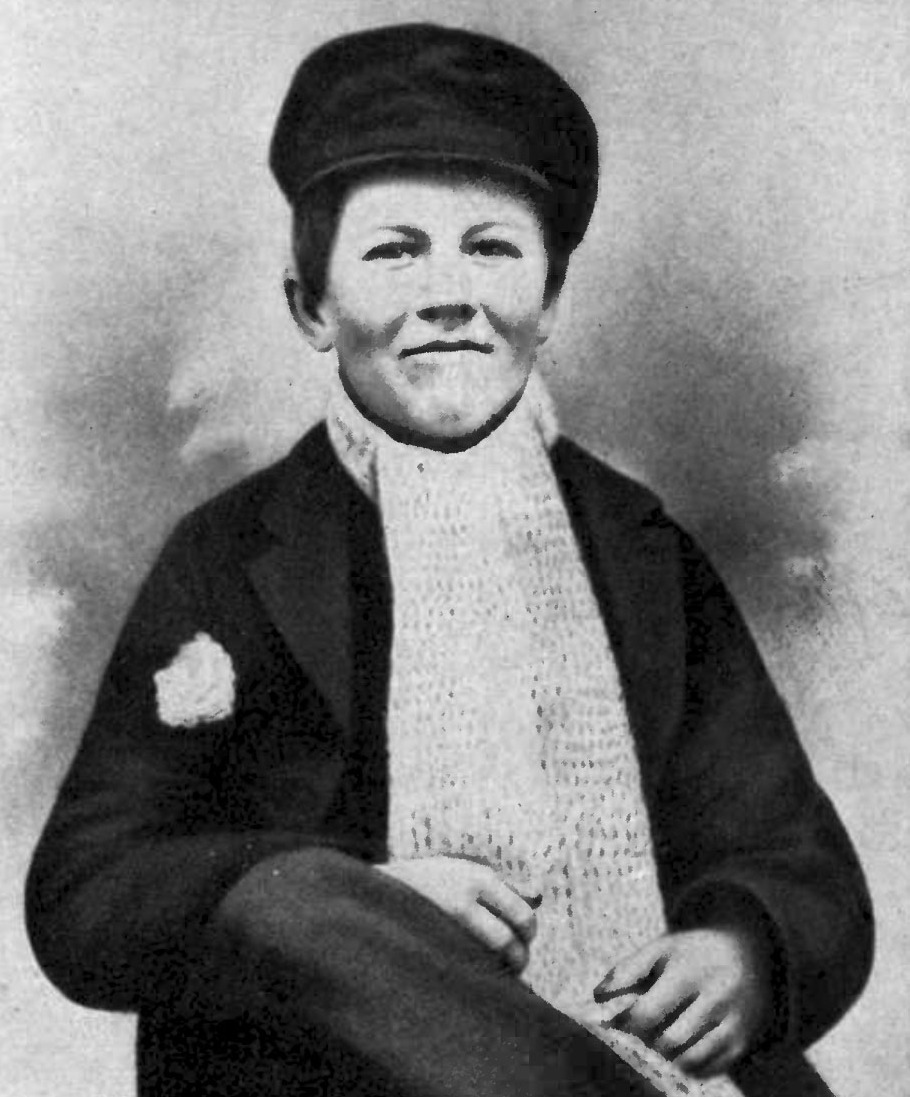|
Joel Engel (composer)
Joel (or Yoel) Engel (, , 1868–1927) was a music critic, composer and one of the leading figures in the Jewish art music movement. Born in Russia, and later moving to Berlin and then to Palestine, Engel has been called "the true founding father of the modern renaissance of Jewish music." As a composer, teacher, and organizer, Engel inspired a generation of Jewish classical musicians to rediscover their ethnic roots and create a new style of nationalist Jewish music, modelled after the national music movements of Russia, Slovakia, Hungary and elsewhere in Europe. This style—developed by composers Alexander Krein, Lazare Saminsky, Mikhail Gnesin, Solomon Rosowsky, and others—was an important influence on the music of many twentieth-century composers, as well as on the folk music of Israel. His work in preserving the musical tradition of the shtetl—the 19th-century Jewish village of eastern Europe—made possible the revival of klezmer music today. Early life and work Engel ... [...More Info...] [...Related Items...] OR: [Wikipedia] [Google] [Baidu] |
Berdyansk
Berdiansk or Berdyansk ( uk, Бердя́нськ, translit=Berdiansk, ; russian: Бердя́нск, translit=Berdyansk ) is a port city in the Zaporizhzhia Oblast (province) in south-eastern Ukraine. It is on the northern coast of the Sea of Azov, which is the northern extension of the Black Sea. It serves as an administrative center of Berdiansk Raion (district), though it does not belong to the raion. The city is named after the Berda River forming the Berdianska Spit at the foot of which it is located. Berdiansk is home to a safari zoo, water park, museums, health resorts with mud baths and climatic treatments, and numerous water sport activities. Since 27 February 2022, it is under Russian military occupation. Name Its original name was "Kutur-Ogly". The city name changed to "Novo-Nogaisk" in 1830 ("New Nogaisk") (see Nogai). The present name was given to the city in 1841 by special decree of Nicholas I and named after the nearby Berda River. Between 1939 and 1958 t ... [...More Info...] [...Related Items...] OR: [Wikipedia] [Google] [Baidu] |
Vladimir Stasov
Vladimir Vasilievich Stasov (also Stassov; rus, Влади́мир Васи́льевич Ста́сов; 14 January Adoption_of_the_Gregorian_calendar#Adoption_in_Eastern_Europe.html" ;"title="/nowiki> O.S._2_January.html" ;"title="Adoption of the Gregorian calendar#Adoption in Eastern Europe">O.S. 2 January">Adoption of the Gregorian calendar#Adoption in Eastern Europe">O.S. 2 January/small> 1824 – 23 October .S. 10 October/small> 1906), was a Russian critic of music and art. Born into a wealthy, noble family Stasov became a prominent figure in mid-19th-century Russian culture. He discovered a large number of its greatest talents, inspired many of their works and fought their battles in numerous articles and letters to the press. As such, he carried on a lifelong debate with Russian novelist and playwright Ivan Turgenev, who considered Stasov "our great all-Russian critic." He wanted Russian art to liberate itself from what he saw as Europe's hold. By copying the west, he ... [...More Info...] [...Related Items...] OR: [Wikipedia] [Google] [Baidu] |
The Dybbuk
''The Dybbuk'', or ''Between Two Worlds'' (russian: Меж двух миров �ибук}, trans. ''Mezh dvukh mirov ibuk'; yi, צווישן צוויי וועלטן - דער דִבּוּק, ''Tsvishn Tsvey Veltn – der Dibuk'') is a play by S. Ansky, authored between 1913 and 1916. It was originally written in Russian and later translated into Yiddish by Ansky himself. ''The Dybbuk'' had its world premiere in that language, performed by the Vilna Troupe at Warsaw in 1920. A Hebrew version was prepared by Hayim Nahman Bialik and staged in Moscow at Habima Theater in 1922. The play, which depicts the possession of a young woman by the malicious spirit – known as ''dybbuk'' in Jewish folklore – of her dead beloved, became a canonical work of both Hebrew and Yiddish theatre, being further translated and performed around the world. Characters * Leah, daughter of Sender, a maiden who had come of age and yet her father constantly rejects her suitors * Khanan, a poor Yeshiva stu ... [...More Info...] [...Related Items...] OR: [Wikipedia] [Google] [Baidu] |
Béla Bartók
Béla Viktor János Bartók (; ; 25 March 1881 – 26 September 1945) was a Hungarian composer, pianist, and ethnomusicologist. He is considered one of the most important composers of the 20th century; he and Franz Liszt are regarded as Hungary's greatest composers. Through his collection and analytical study of folk music, he was one of the founders of comparative musicology, which later became ethnomusicology. Biography Childhood and early years (1881–98) Bartók was born in the Banatian town of Nagyszentmiklós in the Kingdom of Hungary (present-day Sânnicolau Mare, Romania) on 25 March 1881. On his father's side, the Bartók family was a Hungarian lower noble family, originating from Borsodszirák, Borsod. His paternal grandmother was a Catholic of Bunjevci origin, but considered herself Hungarian. Bartók's father (1855–1888) was also named Béla. Bartók's mother, Paula (née Voit) (1857–1939), also spoke Hungarian fluently. A native of Turócszentmárton ... [...More Info...] [...Related Items...] OR: [Wikipedia] [Google] [Baidu] |
Phonograph
A phonograph, in its later forms also called a gramophone (as a trademark since 1887, as a generic name in the UK since 1910) or since the 1940s called a record player, or more recently a turntable, is a device for the mechanical and analogue recording and reproduction of sound. The sound vibration waveforms are recorded as corresponding physical deviations of a spiral groove engraved, etched, incised, or impressed into the surface of a rotating cylinder or disc, called a "record". To recreate the sound, the surface is similarly rotated while a playback stylus traces the groove and is therefore vibrated by it, very faintly reproducing the recorded sound. In early acoustic phonographs, the stylus vibrated a diaphragm which produced sound waves which were coupled to the open air through a flaring horn, or directly to the listener's ears through stethoscope-type earphones. The phonograph was invented in 1877 by Thomas Edison. Alexander Graham Bell's Volta Laboratory made s ... [...More Info...] [...Related Items...] OR: [Wikipedia] [Google] [Baidu] |
Thomas Edison
Thomas Alva Edison (February 11, 1847October 18, 1931) was an American inventor and businessman. He developed many devices in fields such as electric power generation, mass communication, sound recording, and motion pictures. These inventions, which include the phonograph, the motion picture camera, and early versions of the electric light bulb, have had a widespread impact on the modern industrialized world. He was one of the first inventors to apply the principles of organized science and teamwork to the process of invention, working with many researchers and employees. He established the first industrial research laboratory. Edison was raised in the American Midwest. Early in his career he worked as a telegraph operator, which inspired some of his earliest inventions. In 1876, he established his first laboratory facility in Menlo Park, New Jersey, where many of his early inventions were developed. He later established a botanical laboratory in Fort Myers, Florida, in co ... [...More Info...] [...Related Items...] OR: [Wikipedia] [Google] [Baidu] |
Engel With Phonograph
Engel means "angel" in some Germanic languages. Engel or Die Engel may refer to: People * Engel (surname) * Engel Beltré (born 1989), Dominican baseball player Music * Engel (band), a Swedish industrial/melodic death metal band * "Engel" (song), by Rammstein * "Engel", a 2014 song by Admiral P featuring Nico D * "Engel", a 2012 song from the album ''Raise Your Fist'' by Doro Others uses * ''Engel'' (role-playing game), a 2002 role-playing game * Frau Engel, a character in the Wolfenstein video game series * Marian Engle Award, a Canadian literary award presented annually from 1986 to 2007 * Engel Stadium, a baseball stadium in Chattanooga, Tennessee, United States * De Engel (Lisse), a community in the municipality of Lisse, South Holland, the Netherlands * De Engel (restaurant) __NOTOC__ ''De Engel'' is a restaurant in Rotterdam, Netherlands. It is a fine dining restaurant that was awarded one Michelin star in 1997 and retained that rating until 2001. It held a Bib Gourm ... [...More Info...] [...Related Items...] OR: [Wikipedia] [Google] [Baidu] |
Gregor Piatigorsky
Gregor Piatigorsky (, ''Grigoriy Pavlovich Pyatigorskiy''; August 6, 1976) was a Russian Empire-born American cellist. Biography Early life Gregor Piatigorsky was born in Ekaterinoslav (now Dnipro, Ukraine) into a Jewish family. As a child, he was taught violin and piano by his father. After seeing and hearing the cello, he was determined to become a cellist and was given his first cello when he was seven. Piatigorsky won a scholarship to the Moscow Conservatory, studying with Alfred von Glehn, Anatoliy Brandukov, and a certain Gubariov. At the same time, he was earning money for his family by playing in local cafés. Piatigorsky was 13 when the Russian Revolution took place. Shortly afterwards, he started playing in the Lenin Quartet. At 15, he was hired as the principal cellist for the Bolshoi Theater. The Soviet authorities, specifically Anatoly Lunacharsky, would not allow Piatigorsky to travel abroad to further his studies, so he smuggled himself and his cello into ... [...More Info...] [...Related Items...] OR: [Wikipedia] [Google] [Baidu] |
Leopold Godowsky
Leopold Mordkhelovich Godowsky Sr. (13 February 1870 – 21 November 1938) was a Lithuanian-born American virtuoso pianist, composer and teacher. He was one of the most highly regarded performers of his time, known for his theories concerning the application of relaxed weight and economy of motion within pianistic technique – principles later propagated by his pupils, such as Heinrich Neuhaus. He was heralded among musical giants as the "Buddha of the Piano". Ferruccio Busoni claimed that he and Godowsky were "the only composers to have added anything of significance to keyboard writing since Franz Liszt." As a composer, Godowsky is best known for his '' Java Suite'', '' Triakontameron'', ''Passacaglia'' and ''Walzermasken'', alongside his transcriptions of works by other composers: best known work in the field is ''53 Studies on Chopin's Études'' (1894–1914). Life Leopold Godowsky was born in Žasliai (then Vilna Governorate, Russian Empire, now Lithuania) to ... [...More Info...] [...Related Items...] OR: [Wikipedia] [Google] [Baidu] |
Joseph Achron
Joseph Yulyevich Achron, also seen as Akhron (Russian: Иосиф Юльевич Ахрон, Hebrew: יוסף אחרון) (May 1, 1886April 29, 1943) was a Russian-born Jewish composer and violinist, who settled in the United States. His preoccupation with Jewish elements and his desire to develop a "Jewish" harmonic and contrapuntal idiom, underscored and informed much of his work. His friend, the composer Arnold Schoenberg, described Achron in his obituary as "one of the most underrated modern composers". Biography Achron was born in Lozdzieje, Russian Empire (now Lazdijai, Lithuania) to Julian and Bertha and began the study of the violin under his father, an amateur violinist, at the age of five. His first public performance followed three years later at age seven in Warsaw. This was followed by a prodigious childhood career including performances throughout Russia. Between 1899 and 1904 he studied violin under Leopold Auer and composition under Anatoly Lyadov, at the Sain ... [...More Info...] [...Related Items...] OR: [Wikipedia] [Google] [Baidu] |
Jascha Heifetz
Jascha Heifetz (; December 10, 1987) was a Russian-born American violinist. Born in Vilnius, he moved while still a teenager to the United States, where his Carnegie Hall debut was rapturously received. He was a virtuoso since childhood. Fritz Kreisler, another leading violinist of the twentieth century, said after hearing Heifetz's debut, "We might as well take our fiddles and break them across our knees." He had a long and successful performing career; however, after an injury to his right (bowing) arm, he switched his focus to teaching. Late in life, Heifetz became a dedicated teacher and a champion of socio-political causes. He publicly advocated to establish 9-1-1 as an emergency phone number, and crusaded for clean air. He and his students at the University of Southern California protested smog by wearing gas masks, and in 1967, he converted his Renault passenger car into an electric vehicle. Early life Heifetz was born into a Lithuanian-Jewish family in Vilnius (Russia ... [...More Info...] [...Related Items...] OR: [Wikipedia] [Google] [Baidu] |
Society For Jewish Folk Music
The Jewish art music movement began at the end of the 19th century in Russia, with a group of Russian Jewish classical composers dedicated to preserving Jewish folk music and creating a new, characteristically Jewish genre of classical music. The music it produced used Western classical elements, featuring the rich chromatic harmonies of Russian late Romantic music, but with melodic, rhythmic and textual content taken from traditional Jewish folk or liturgical music. The group founded the St. Petersburg Society for Jewish Folk Music, a movement that spread to Moscow, Poland, Austria, and later Palestine and the United States. Although the original society existed formally for only 10 years (from 1908 to 1918), its impact on the course of Jewish music was profound. The society, and the art music movement it fostered, inspired a new interest in the music of Eastern European Jewry throughout Europe and America. It laid the foundations for the Jewish music and Klezmer revival in the ... [...More Info...] [...Related Items...] OR: [Wikipedia] [Google] [Baidu] |







